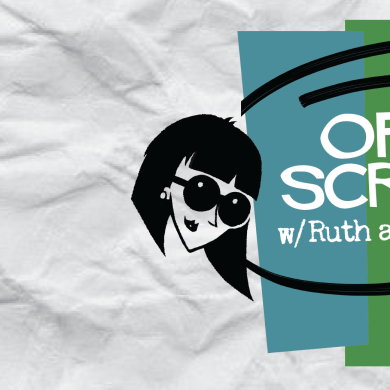[The] latest piracy threat [is] even more worrisome to the music industry: stream ripping.
– Wall Street Journal, September 12, 2016
Recently, Taylor Swift debuted her latest single, “Look What You Made Me Do,” online to great viral fanfare – quickly smashing records in its wake. On YouTube, the song’s official music video racked up 19 million views in its first 24 hours online – making it the site’s most-watched video in a single day. On Spotify, it garnered nearly 9 million plays – making history as the platform’s most streamed track ever in a first day of release.
That’s right. Ever. Still, Swift’s groundbreaking numbers for “Look What You Made Me Do” could’ve been higher – maybe much higher. That’s because as soon as it was uploaded, Swift inevitably became the latest victim of the damaging online-piracy phenomenon known as “stream ripping.”
How do we know this? Well, it would be statistically unlikely if a popular song like “Look What You Made Me Do” wasn’t stream ripped. Current studies indicate nearly half of all 16-24 year olds worldwide – Swift’s primary audience – “had illegally [stream ripped] songs from YouTube or other streaming sites.” And in the U.S. specifically, research firm MusicWatch has estimated a 50% increase in the number of internet users who stream ripped music in just two years.
That’s only the tip of stream ripping’s highly accessible, copyright crushing, virtual iceberg. Stream ripping is fast and user-friendly – taking music from a service like YouTube that is authorized only for online streaming, and turning it into a permanent download. It’s also the most insidious form of digital piracy yet.
How it all works proves to be alarmingly easy. There are a myriad of websites that will make a copy of any YouTube music video, or if the user wants, just the audio track, and then allow the user to download a permanent copy of the file. Some sites sell software to users that once installed can capture a permanent copy of the video and convert it into an audio track that can then be added to the user’s music library on their computer or smart phone. When that is done there is no need to ever return to a streaming service to listen to the music and no reason to ever buy a copy.
The entire process is as unlawful as any other form of illegal downloading. And it’s not going away. In fact, it’s surging in popularity:
Stream-ripping is now the “most aggressive” and “fastest-growing” form of music piracy… 15% of UK adults frequent sites that allow users to illegally turn Spotify songs, YouTube videos and other streaming content into permanent files that are then available to store on their devices.
– Factmag.com, July 7, 2017
New research by the U.K. government found stream ripping is responsible for “nearly 70% of music-specific infringement… overwhelmingly overshadowing all others.” And if consumer adoption of stream ripping increases, it could further hobble a music industry already constrained by piracy.
Websites can exploit vulnerabilities which are inherent in [our] streaming technology, which allows them to rip the stream and provide it for download elsewhere.
– Soundcloud Help Center
Stream ripping harms real people – it undermines the ability of musicians, producers, and songwriters to get fairly paid for their work.
Overwhelmingly adopted by the public, legal streaming sites like Spotify have revitalized the music industry. The Recording Industry Association of America’s recent mid-year music industry revenue report attributes the music industry’s first double-digit growth in nearly two decades to licensed streaming.
However, if stream ripping is allowed to spread, it could take a Napster-sized bite out of music’s recovery. Thanks to stream ripping, songwriters, performers, and producers alike can say sayonara to the corresponding lost royalties they depend on.
People must be educated that stream ripping is wrong and endangers creatives’ livelihoods. Fans don’t always realize it’s against the law: they need to be reminded that stream ripping remains an actual crime. Record labels are rightly bringing legal action against stream ripping sites and recently won a major victory against youtube-mp3.org, the largest stream ripping site in the world. In the aftermath of this lawsuit, similar sites have either voluntarily shut down or are seeking licenses. And of course, one must ask, where is YouTube when all of these stream ripping sites flagrantly violate its terms of service? Surely YouTube can do better.
Through such direct appeals, we must powerfully engage the public’s conscience on this issue. If we don’t unite in taking action now against stream ripping, it could finish the job that illegal MP3 downloads began. If we wait any longer to address stream ripping, this dangerous practice just might become our new normal. And that’s not music to anyone’s ears.



